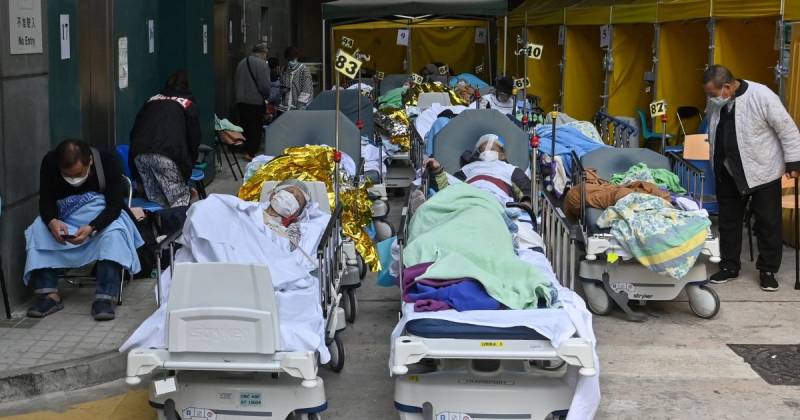China boosts bed spaces as Omicron outbreak spreads

Stay tuned with 24 News HD Android App

China moved to free up hospital beds as officials on Wednesday reported thousands of new cases from an Omicron-led coronavirus outbreak that has put millions under lockdown and raised fears for the health system.
Just three weeks ago China was reporting under one hundred Covid cases daily, but that number has swelled past 1,000 per day for a week.
It logged 3,290 new confirmed infections on Wednesday, including 11 severe cases.
China, where the virus emerged in Wuhan in late 2019, has largely kept it under control since then through strict measures, and has not reported any Covid-related deaths for more than a year.
But the highly transmissible Omicron variant is posing a stern challenge to its zero-Covid strategy, resulting in the 17.5 million residents of the southern tech hub of Shenzhen being locked down and other cities also under tight restrictions.
Authorities previously sent all patients with any symptoms to specialist hospitals.
But the National Health Commission late Tuesday said patients with mild Covid cases could isolate at a central quarantine facility to ease pressure on hospitals over fears of a looming bed shortage.
"Patients with Omicron variant strains are mainly asymptomatic infections and mild cases, most of them do not require serious treatment," the National Health Commission said.
"All admission to designated hospitals will take up a lot of medical resources."
Images of patients lying on gurneys outside hospitals in Hong Kong, where hospitals have been overrun by a surge in cases, have spooked mainland officials, who are now also rushing to build makeshift hospitals in some provinces.
Footage on state broadcaster CCTV Wednesday showed dozens of giant cranes assembling "temporary hospitals" in northeast China's Jilin province, which has reported more than 5,000 cases over the past week.
The province of more than 24 million residents has only 22,880 hospital beds.
Mass testing campaign
As of Tuesday, 6,000 railway carriage-style hospital rooms -- first erected during the early days of the pandemic in Wuhan -- have been put in place in Jilin City and the nearby metropolis of Changchun, to deal with a feared influx of patients.
As well as leaving tens of millions of people under lockdown across the country, the latest spike in cases has sparked long queues outside mass testing sites and tight controls at ports, raising the risk of trade disruption.
In China's biggest city, Shanghai, authorities continued to ramp up a mass testing campaign that so far has seen at least 1.2 million tested in recent days, according to state media.
Shanghai has closed school campuses and this week began locking down individual residential compounds with cases or suspected close contacts for at least 48 hours for testing in a targeted approach, as fatigue with zero-Covid develops.
But city authorities said on Wednesday that in coming days they would also begin locking down and testing an unspecified number of "key areas" in Shanghai, suggesting an expanded test mandate across the city of 25 million people.
A lockdown in major tech hub Shenzhen has prompted fears from analysts of a drag on growth as many factories and businesses closed.
Major Apple supplier Foxconn said Wednesday it had resumed some operations at sites where production and accommodation were on the same site.
The capital Beijing reiterated earlier rules that banned all travellers from areas with reported cases in the past 14 days, while other arrivals must show a recent negative Covid-19 test.
